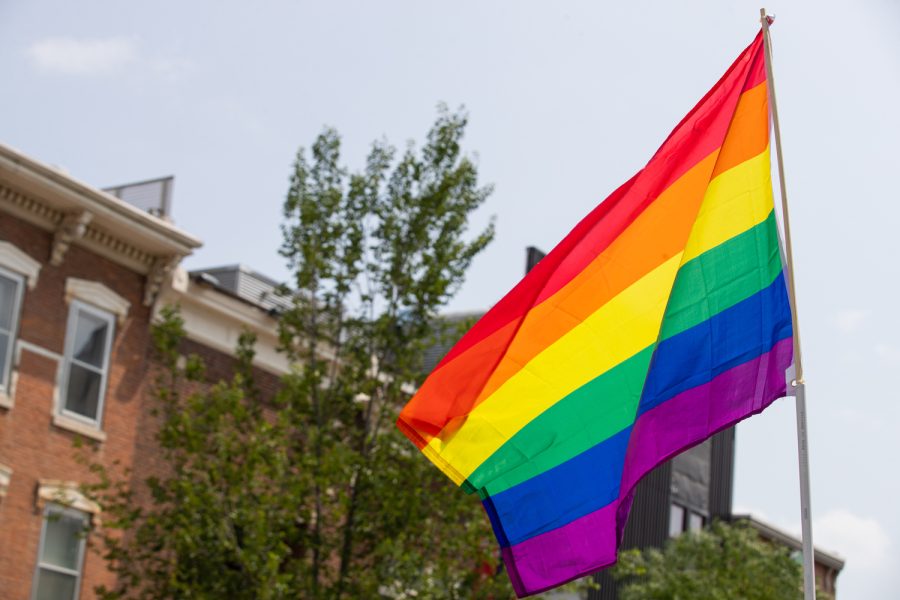Opinion | Corporations should be standing for pride
There is a sense of pride missing this month. Here’s why that’s alarming.
A pride flag is seen during the 2023 Pride Parade & Festival in downtown Iowa City on Saturday, June 17, 2023.
June 20, 2023
I have been a barista at Starbucks since May 2020. In years prior, stores have shown support for the LGBTQ+ community during pride month with flags, encouraging messages, media campaigns and themed decor.
This year, the only sign of pride at my store is a small shelf of colorful Tim Singleton tumblers.
Starbucks locations across the country have been called out for removing pride decorations amidst a wave of anti-pride and anti-LGBTQ+ sentiment in the US. For years, corporations like Starbucks have benefited from celebrating pride month. Choosing to turn a cold shoulder to pride month amid growing anti-LGBTQ+ rhetoric is a painful reminder that corporations don’t actually value morality as much as their profits.
This has been a terrible year for members and allies of the LGBTQ+ community.
This community has been the central target of right-wing commentators and politicians. In 2023, more than 520 anti-LGBTQ+ bills were introduced in state legislatures, according to the Human Rights campaign. Across the country, trans youth are being barred from gender affirming care and drag shows are banned for being “harmful to minors.”
In Iowa, public schools can no longer offer education on gender and sexual identity until seventh grade. This bill, SF 496, also requires school districts to out trans students to their parents and removes HIV and HPV curricula.
This community is under attack. Corporations have taken notice and some have chosen the lesser path forward.
In recent years, companies have made considerable profits by ‘rainbow washing.’ During pride month, many companies will visibly display pride themed merchandise filled with queer lingo and messages. Corporations have benefited from pride financially, but supporting pride has also improved their reputation in the public eye.
In the midst of ongoing anti-LGBTQ rhetoric, these companies have scaled back. Target, a retailer notoriously known for their interesting pride collection, moved displays from the front to the back of stores, and removed some of its merchandise.
It’s understandable why companies like Target and Starbucks have dialed back on pride this year: they don’t want to lose profits by turning away customers. I also understand that corporations are corporations — not people. But this trend alarms me and it should alarm you too.
The LGBTQ+ community has made great strides in social acceptance over the last century. Some of this acceptance can be attributed to representation in media, like promotional ads and merchandise. These companies have profited by pride merchandise in the past, and are now going backwards in fear of losing profit. If this trend continues, I fear this representation will fade.
It’s hypocritical to only support pride when it’s convenient, and to look the other way when times get trival. Watching these influential companies scale back their support during pride month is a move in the wrong direction. As these corporations move backwards, so could we.
My coworkers and friends are upset by the lack of pride shown in our store this year. While at work this weekend, I served several people who were going to and coming back from the pride parade downtown. During this shift, I couldn’t help but feel disappointed that the corporation I work for is not showing up for its customers or employees.
No matter how many rainbow cups these retailers have sold, their actions speak louder than their merchandise. When it was time to act, these corporations did not stand up.
Pride should not be a financial endeavor. Now is the time to show up for pride and work to move forward.
Columns reflect the opinions of the authors and are not necessarily those of the Editorial Board, The Daily Iowan, or other organizations in which the author may be involved.















